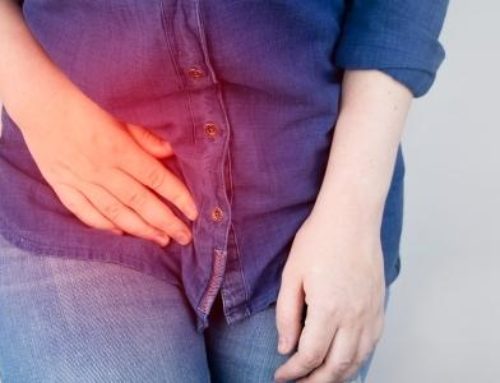
If you’ve been suffering from gut symptoms for a while, chances are you’ve spoken to your GP about it. Your doctor is a great starting point for investigating the cause of your gastro-intestinal (GI) symptoms because they can often rule out some possible contributors before you go down an unproductive rabbit warren.
Some of the things your doctor may investigate include:
- Possible gastrointestinal infection through stool and blood tests
- The possibility of coeliac disease
- The risk of anything more sinister like inflammatory bowel disease or cancer
Your doctor may also make some recommendations for medications or dietary change, which might help to alleviate symptoms like constipation, nausea, bloating and diarrhoea.
If these investigations and changes aren’t resulting in any improvement to your symptoms, it can be good to consider other possible causes and management strategies.
Consider a structural cause
It’s possible that the symptoms you’re experiencing are caused by a disruption to the structure of the gastrointestinal tract. This could include (but may not be limited to):
Coeliac disease
An autoimmune condition where the body overreacts to the gluten protein in wheat and other grains, causing damage to the GI tract.
Eosinophilic Oesphagitis (EoE)
A chronic allergic condition that results in discomfort or difficulty when swallowing and the sensation of food getting ‘stuck’ in the oesophagus
Inflammatory Bowel Disease (IBD)
A condition where parts of the GI tract become damaged due to prolonged inflammation. This includes Crohns disease and ulcerative colitis.
Reflux and Barrett’s oesophagus
A range of conditions that result in backflow of gastric acid into the oesophagus. This can cause heart burn, abdominal discomfort and nausea. Ongoing exposure to the gastric acid can cause damage to the oesophagus and creates a greater risk of oesophageal cancer.
Gastroparesis
A condition where the stomach is very slow to empty and results in nausea, vomiting, bloating and belching.
Diverticulitis
The formation of small bulging pouches in the large intestine. If these pouches become inflamed or infected it can result in abdominal pain, diarrhoea, nausea and fever.
Bowel Cancer
Changes in stool consistency and GI symptoms can indicate the presence of cancer at various points along the tract.
These conditions are best identified and ruled out through a gastroscopy or colonoscopy. Your doctor may refer you to a gastroenterologist to diagnose and manage these and other structural causes of your symptoms.
Consider a functional cause
If you’ve ruled out an infectious and structural cause of your symptoms, it may be a functional gut disorder.
Functional gut disorders include GI symptoms that are caused by dietary, bacterial or neuromuscular factors, or a combination of these. Irritable Bowel Syndrome (IBS) is the common term for these disorders, however there is no one-size-fits-all approach to the management of IBS symptoms.
A dietitian can take a comprehensive approach to managing IBS and this may involve several strategies such as:
Completing a comprehensive food and symptom journal
Gathering a full picture of your dietary patterns and symptoms can help to draw clearer correlations between the two. Food and symptom journals are most effective when you can gather data on:
- The time that meals and snacks take place
- A breakdown of the key ingredients that a meal or snack contained.
- The time that various symptoms are noticed as well as their severity, duration and the strategies used to manage them.
- The time and consistency of bowel movements.
Adjusting dietary fibre intake
The volume and balance of fibre in your diet can have a significant impact on the consistency of poo and the comfort of your gut.
While adjustments to fibre alone may not address all IBS conditions, it is an easy way to support gut health.
Probiotics
While the complexity of your gut bacteria is not completely understood, there is evidence to suggest that the use of some probiotics may improve symptoms for those with functional gut disorders. Trialling specific probiotic may also help to correct or manage a functional gut.
Elimination diets
IBS symptoms may be caused by intolerance to various parts of food including FODMAPs and Food Chemicals.
FODMAPs have been shown to be a common contributor to gas production in the large intestine, which results in abdominal bloating, distension, pain, cramping and loose bowel movements. Intolerances to food chemicals such as salicylates, amines, glutamates and preservatives can also result in GI symptoms such as reflux, nausea and IBS.
These intolerances can be investigated through an elimination diet, followed by a process of challenging the various food components.
Elimination diets such as the low FODMAP diet and the RPAH elimination diet are not designed to be maintained long term and it’s important to work with a dietitian, to return to as varied diet as possible, while avoiding unwanted symptoms.
Toileting practices
Functional gut disorders by also be affected by how you go to the toilet and your pelvic floor control. For instance, avoiding doing a poo can result in a greater level of fluid absorption in the bowel. This creates a poo which is more difficult to pass and can cause bloating, abdominal distension, and a greater level of fermentation further back in the gut.
Working with a dietitian and a pelvic floor physiotherapist can help to ensure that your toileting habits and food intake are supporting a comfortable poo.
Psychological health
There’s growing research about gut-brain axis and we are learning that your state of mind has a big impact on GI symptoms. Depression, anxiety and PTSD are all linked to IBS and addressing these psychological conditions may result in an improvement to GI symptoms.
Feelings of stress and anxiety around bowel movements can also affect toileting habits and GI function.
For instance, if you avoid using public or work toilets you may be at a greater risk of developing constipation and bloating. Alternatively, worrying about having an accident may result in a sense of urgency and looser bowel movement.
How we can help:
Because there are so many factors to consider when managing GI symptoms, it’s great to work with a collaborative team of health professionals.
Chat to your GP about some of these possible contributors and don’t hesitate to get in contact with our helpful team of dietitians to start building your gut health team.



